
 Flash News
Flash News
Two vehicles collide in Karbunara, one injured
Fire near the center for people with disabilities in Berat, suspected to be intentional
Internationally wanted for corruption, Loran Dusha extradited from Zimbabwe
Fire in Kavaja, a scrap metal collection point engulfed in flames
The appeal of the GJKKO leaves the seizure of Arben Ahmetaj's assets in force
Analysis: Israel's attack on Iran, ignition of conflict in the Middle East?
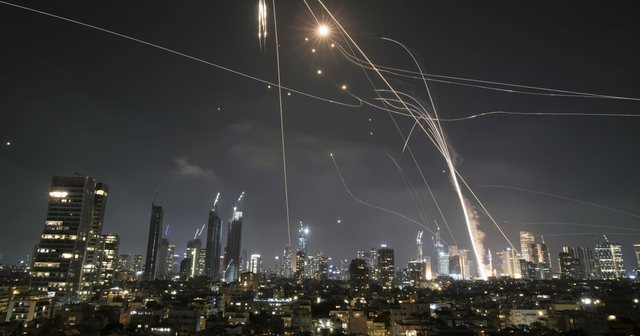
To call the Middle East like a barrel of gunpowder seems to be a little. It was in this region that Israel under Prime Minister Benjamin Netanyahu now threw an explosive spark. With the large-scale attack on 100 targets in Iran, justified as a "preemptive strike" against the possible development of Iranian nuclear weapons. Israel's attacks, including on residential areas in Tehran, according to Prime Minister Netanyahu will continue for several more days.
It is difficult to predict the consequences
The consequences in the region and beyond are unpredictable. Some developments, however, are already being conlined: The US-mediated talks launched in Oman on the Iranian nuclear program were canceled by the Iranian side. Israel's attack followed two days before the next round of talks.
US President Donald Trump had asked the Israeli government not to obstruct the talks with any attack. And just before Israeli missiles hit Tehran, Trump posted the announcement that he has hope for the continuation of the talks. That Netanyahu does not consider talks on the nuclear program, this is also what the murder of Ali Shamchani during the attacks speaks of. Shamchani was hired by religious leader Ali Chamenei as head of the committee for talks with the US on the nuclear program.
Can Iran attack US targets?
Among the open questions is whether Iran will also target US targets in retaliatory strikes. The US is considered Israel's most important military supporter, enabling such large-scale attacks. Tehran has repeatedly threatened in the past with retaliatory attacks on US bases in the Middle East. As a result, the US started a few days ago with the evacuation of personnel and family members of US troops, which are not necessary on these bases. There are many possible targets: Between Egypt and the United Arab Emirates, the US has eight permanent bases and several mobile military bases, in which about 50,000 soldiers are deployed.
Indeed Iran has no interest in a military confrontation with the US, but whether Tehran will counterstrike, it depends on how and if the US administration distances itself from Israeli attacks. Foreign Minister Marco Rubio in a post swears that the US is in no way a participant in Israel's actions. He also warns that US targets should not be targeted in any way.
In the Middle East, nervousness is generally high. Countries in the region have harshly criticized Israel's attack — including Saudi Arabia, which until recently was a staunch opponent of Iran.
The Abraham Accord established during Donald Trump's first presidential term for rapprochement between Israel and the Arab world - has now been frozen. Rapprochement efforts suffered a setback during Israel's fighting in Gaza.
Saudi Arabia and Iran, meanwhile, after fierce hostilities for years, had begun to come closer with the mediation of China. Relations between the two countries had intensified, and the two countries even aimed at military cooperation, and a joint exercise was expected to be organized. The visit of Saudi Defense Minister Khalid bin Salman to Tehran also served as the latest sign of rapprochement. There, Mohammed bin Salman's brother also had a meeting with the religious leader.
Saudi Arabia and other countries in the region do not want to get involved in the conflict between Israel and Iran in any way, much less if the US is also involved in it. Iran against the background of a superior adversary can also follow the course of an asymmetrical war. Among such actions is the disruption of oil extraction and transportation. In 2019, drone strikes by Yemeni Houthi militias cut off half of Saudi oil extraction. Even in the years that followed, Saudi oil plants have consistently been the target of attacks from Yemen. Therefore, it is not surprising that oil prices have risen massively in the wave of Israeli attacks.
It is unclear whether Israel will achieve the officially announced goal of preventing the construction of the Iranian atomic bomb with the attack launched. So far, most experts doubt that the Iranian nuclear program can be destroyed militarily. The attacks may even have the opposite effect, to prompt Iran to construct the atomic bomb right now. But such action would lead to an atomic arms race in the Middle East. And no one can be interested in such a thing./DW
Latest news


Two vehicles collide in Karbunara, one injured
2025-06-14 21:36:38
A person is found without signs of life in Peja
2025-06-14 21:18:19

Are you hungry after exercising? Experts recommend these snacks
2025-06-14 20:36:24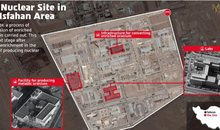

Kudos to Edi Rama for committing the May 11 theft in front of the cameras!
2025-06-14 19:57:21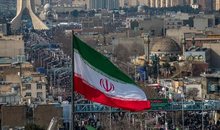
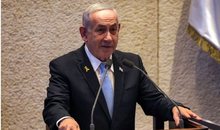

These are the 3 most jealous zodiac signs
2025-06-14 19:01:29

Nesho: Iran is the violator of nuclear production
2025-06-14 18:21:43


A scrap metal collection point in Kavaja is engulfed in flames
2025-06-14 17:19:47
After Israeli attacks, Iran considers blocking the Strait of Hormuz
2025-06-14 17:02:28


Ja çfarë i ndodh organizmit tuaj nëse konsumoni çdo ditë limon
2025-06-14 16:16:23



Internationally wanted for corruption, Loran Dusha extradited from Zimbabwe
2025-06-14 15:30:04
VIDEO/ Dubai skyscraper engulfed in flames, 3,800 residents evacuated
2025-06-14 15:16:49
With these 5 ways, you can cope with the heat even at home
2025-06-14 15:08:46


Fire in Kavaja, a scrap metal collection point engulfed in flames
2025-06-14 14:43:40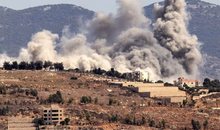
Israel eliminates 9 scientists of the Iranian nuclear program
2025-06-14 14:33:34
The appeal of the GJKKO leaves the seizure of Arben Ahmetaj's assets in force
2025-06-14 14:17:14
Less appearance, more connection: How the way men love is changing
2025-06-14 14:16:13
Astrit Sinanaj is arrested in Tirana, he tried twice to kill a businessman
2025-06-14 14:02:59
Accident on Arbri Road, two foreign tourists end up in Trauma
2025-06-14 13:37:03




Tourist found dead inside apartment in Vlora
2025-06-14 12:46:40

Accident in Levan, truck with kitchen utensils ends up in the canal
2025-06-14 12:12:57

Clashes at the Order of the Psychologist, Treska declares the elections invalid
2025-06-14 11:45:55


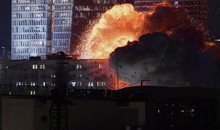
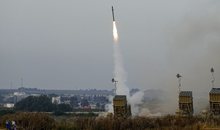

The weekend brings luck for this zodiac sign, a pleasant surprise is coming!
2025-06-14 10:34:31
Caught with firearms and drugs in the car, two people arrested at "Ali Demi"
2025-06-14 10:25:17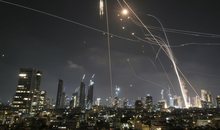
Analysis: Israel's attack on Iran, ignition of conflict in the Middle East?
2025-06-14 10:16:14
Gambling in a bar, the owner and the waiter are arrested in Divjaka (NAMES)
2025-06-14 10:07:27


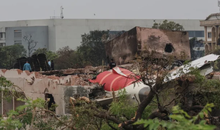

Tourist packages, how much does Albania "cost"
2025-06-14 08:58:23


From sun to clouds, what will the weather be like this Friday in Albania
2025-06-14 08:19:49
Morning mail/ With 2 lines: What mattered yesterday in Albania
2025-06-14 08:08:49
CEC decides to limit spending on local election campaign in Kosovo
2025-06-13 22:54:43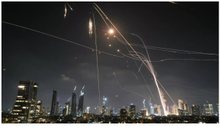
Israel confirms US support for the neutralization of missiles by Iran
2025-06-13 22:37:44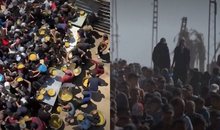

Foods you should avoid after your 40s for health
2025-06-13 22:05:07
Possessive and toxic, get to know the 3 most jealous signs of the horoscope
2025-06-13 21:51:58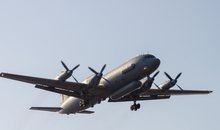
Poland: A Russian plane violated our airspace!
2025-06-13 21:40:15



Tragedy in Kurbin/ Fire engulfs pig barn, 450 pigs burned alive
2025-06-13 20:40:44
Xixho: Without functional democracy, EU integration remains an illusion!
2025-06-13 20:27:45
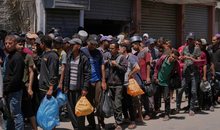
UN: Gaza aid group has failed in its mission
2025-06-13 20:04:32

BIRN: Half of Albanians have a gross salary of less than 62 thousand lek!
2025-06-13 19:31:41
Revenge warned/ Iran raises red flag over mosque, consequence of Israeli attacks
2025-06-13 19:23:10
Albanian man killed in metro station, two Englishmen found guilty
2025-06-13 19:08:41
How recommended is a midday nap for health?
2025-06-13 19:01:58

Serious in Italy/ Albanian stabs 23-year-old in Ravenna, escapes on motorcycle
2025-06-13 18:18:57
Car catches fire in Bulqiza, driver and passengers rescued
2025-06-13 17:59:20

Attacks on Iran/ Tirana-Tel Aviv flights canceled, embassy closed
2025-06-13 17:35:45
Apple warns again: Don't sleep with your iPhone while charging!
2025-06-13 17:20:31
Albanian youth raped worker in Greece, surrenders to police (NAME)
2025-06-13 16:59:50
Plenary session in the Parliament on Monday, what will be discussed?
2025-06-13 16:42:10


Fire in Berat, a bushy area is engulfed in flames
2025-06-13 16:06:18



Israeli attacks, Trump calls on Iran: A deal must be made, before it's too late
2025-06-13 15:19:21

Israel's attacks on Iran raise oil prices worldwide
2025-06-13 14:56:37
The Kosovo Assembly is not constituted even in the 31st attempt
2025-06-13 14:41:24
Euro hits 'bottom', European currency drops to new historic low
2025-06-13 14:30:28
First outbreak of small cattle plague confirmed in Korça
2025-06-13 14:19:51
Kiara Tito "in mourning", experiences great pain: I will always miss your voice
2025-06-13 14:13:47
